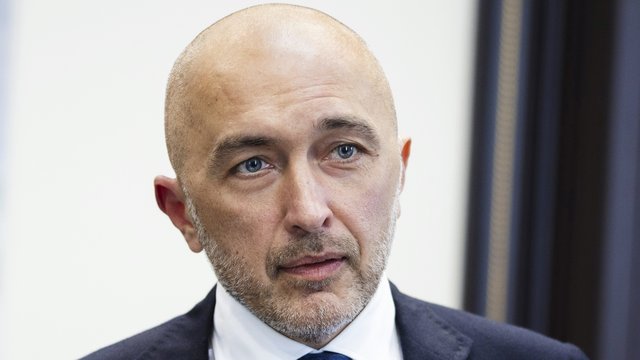Balance of payments should be viewed with baseline assumption of sufficient intl financing – Ukraine's National Bank governor

In its policy decisions, including those concerning the balance of payments, the National Bank of Ukraine (NBU) is fully justified in basing its macroeconomic forecast on the assumption of sufficient international financing, since the probability of this scenario materializing exceeds 50%, NBU Governor Andriy Pyshnyy said.
"In this case, the overall picture differs sharply from the prewar situation, and a current account deficit alone is not enough to conclude that a balance-of-payments crisis is likely. Moreover, even by textbook standards, if a large current account deficit is financed, for example, by an inflow of foreign direct investment, the probability of a crisis is much lower than when it is financed by debt capital, especially short-term debt," he wrote in an op-ed for Interfax-Ukraine.
Pyshnyy noted that this is why, for example, Central and Eastern European countries in the 2000s, despite having high current account deficits financed mainly through FDI inflows, managed to avoid balance-of-payments crises.
He emphasized that for applied analysis of external sustainability, the concept of the broad basic balance is often used, which combines the current account and FDI inflows, and that external financing serves to balance the overall payments position.
"The broad basic balance accounts for certain elements of international financing that are not subject to capital flow reversals, at least in the medium term (three to five years). For example, one of Ukraine's main current sources of external support is ERA program loans, which will be repaid from proceeds of immobilized Russian assets. Starting in 2026, we also expect to receive funds through a reparations loan," Pyshnyy said.
He argued that such inflows are essentially an investment by Ukraine's partners in European security, a view shared in the latest issue of The Economist, titled "Why Funding Ukraine Is a Huge Opportunity for Europe," which explains how such support helps shift the geopolitical balance of power in Europe's favor.
"And if the support funds provided to Ukraine are viewed as grants (or investments), which more accurately reflects their true economic nature, then the current account would be balanced or even show a surplus," the NBU governor concluded.
He added that when a current account deficit is accompanied by FDI inflows and concessional financing such as macro-financial assistance (MFA) loans from the European Commission, or debt that will be repaid from external sources such as ERA loans, the adjusted broad basic balance becomes positive and provides an additional foundation for building up international reserves.
Pyshnyy expressed confidence that this interpretation most accurately reflects the nature of the support Ukraine is receiving and aligns with the growing recognition of Ukraine's strategic role as a security asset for the EU and a defensive bastion on Europe's eastern flank.
"Does this analysis mean that Ukraine can relax about its economic challenges? Definitely not. The task of mobilizing both internal and external resources for defense and recovery remains as urgent as ever. At the same time, this interpretation of Ukraine's balance of payments during full-scale war allows for accurate diagnosis and the formulation of relevant solutions instead of standard ones that ignore wartime realities," the central bank chief concluded.
In its latest macroeconomic forecast published at the end of October, the NBU increased its estimate of this year's current account deficit to $36.6 billion from $34.6 billion, compared to $15.1 billion in 2024 and $9.6 billion in 2023. The central bank also slightly worsened its projections for the deficit in 2026 and 2027, to $35.3 billion and $38.4 billion, respectively.
At the same time, the NBU expects an overall balance of payments surplus of $7.8 billion for 2025, following a balanced result last year. For 2026, the NBU projects a deficit of $1.7 billion, followed by a $6.2 billion surplus in 2027.
The NBU also raised its forecast for international reserves for 2026 from $44.7 billion to $52.2 billion, and for 2027 from $45.2 billion to $59.2 billion, expecting steady inflows of international financing, including through the "reparations loan" mechanism based on immobilized Russian assets.







